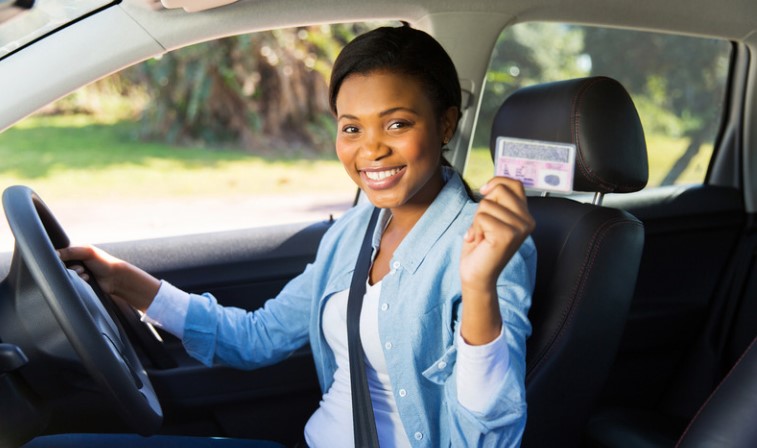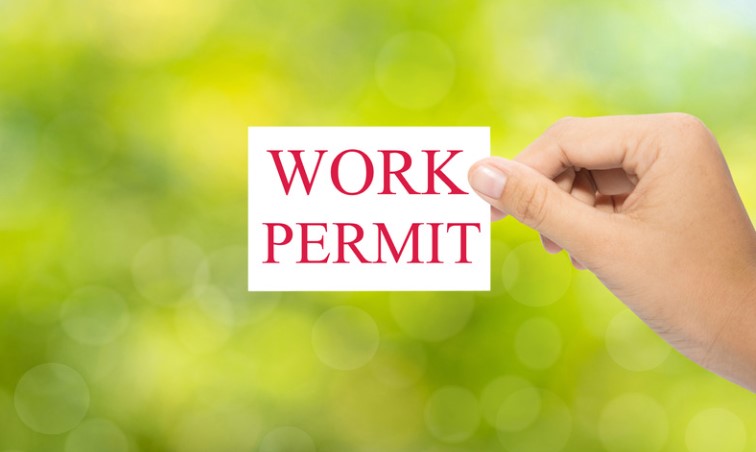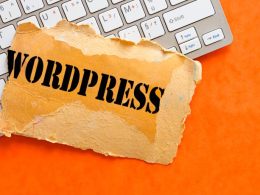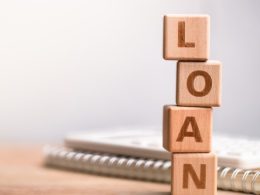Are you planning to drive in the beautiful province of British Columbia? Whether you’re a new driver or just moved to B.C., getting your driver’s license is important. But where do you start, and what are the requirements? Don’t worry; we’ve got you covered! In this blog post, we’ll guide you through the types of licenses available, eligibility requirements, knowledge test preparation tips, road test guidelines and more. So fasten your seatbelt, and let’s get started on obtaining your own B.C. driver’s license!
How to Get B.C. Drivers License?
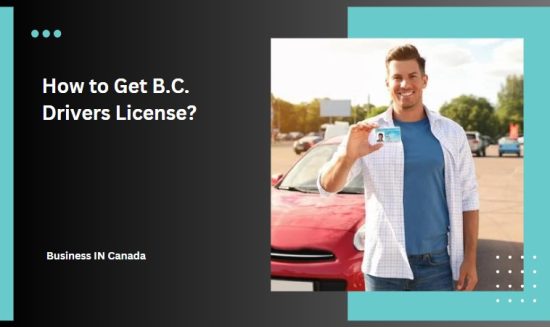
The first step in obtaining a B.C. drivers license is to get your learner’s permit. You’ll need to pass a knowledge test at one of the ICBC driver licensing offices to do this. You can study for the test using the Learn to Drive Smart guidebook or take an online practice knowledge test.
Once you have your learner’s permit, it’s time to start practicing your driving skills. You must have your permit for at least 12 months and complete at least 60 hours of supervised driving before taking the road test. Make sure to keep track of these hours in a logbook provided by ICBC. We will see everything in detail below.
Types of License
In British Columbia, there are three types of driver’s licenses that you can obtain – the Learner’s License, Novice License and Full License. Each of these licenses has its own set of requirements and restrictions.
Learner’s License
In British Columbia, a Learner’s License is the first step toward obtaining a full driver’s license. This license type is designed for those who are just starting to learn how to drive and want to gain experience on the road. To apply for a Learner’s License in B.C., you must be at least 16 years old and have passed a knowledge test. The test covers basic driving rules, regulations, and essential road signs for safe driving.
After passing the knowledge test, you can start practicing your driving skills under the supervision of a licensed driver. You will need to display L-plates on your vehicle while driving with your learner’s permit. It is important to note that there are certain restrictions with this type of license. For example, you cannot drive alone or operate a cell phone while behind the wheel.
Obtaining a Learner’s License is an important step toward becoming a responsible and safe driver in British Columbia.
Novice License
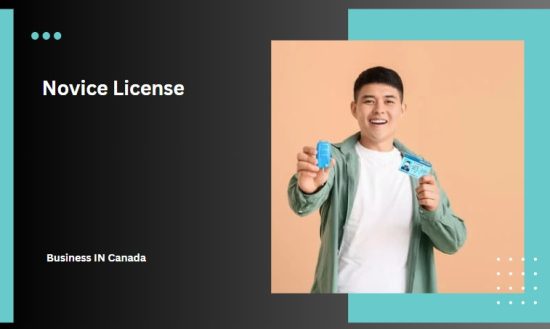
The Novice License is the second stage of obtaining a driver’s license in British Columbia. It is issued to drivers who have completed their Learner’s License period and passed their road test.
This type of license has some restrictions, such as not being able to drive between midnight and 5 am unless there is a licensed supervisor or immediate family member with a full license in the vehicle. Additionally, novice drivers cannot have more than one passenger under the age of 25 years old that are not an immediate family member.
The Novice License lasts for two years, during which time new drivers must accumulate experience by practicing safe driving habits on B.C. roads. If they violate any traffic laws or regulations during this period, they may face penalties such as extending their novice status.
The Novice License serves as an intermediary step toward getting a Full Driver’s Licence in British Columbia. It allows new drivers to gain valuable experience while still having certain limitations outlined for safety purposes.
Full License
The Full License is the final stage of getting your B.C. Drivers License. After completing the Learner’s and Novice stages, you are now ready to take on the open road with all the privileges of a fully licensed driver.
To get a Full License in British Columbia, you must have held your Novice license for at least two years without any driving prohibitions or suspensions. You will also need to pass an additional road test that covers more advanced driving skills, such as highway driving and parallel parking.
It’s important to note that even with a Full License, there are still certain restrictions when it comes to drinking and driving. The legal blood alcohol limit for new drivers is zero percent, meaning they cannot consume any alcohol before getting behind the wheel. However, having a Full License opens up many opportunities for drivers in British Columbia. With this license, you can drive anywhere in Canada and enjoy all the benefits of being an experienced driver on our roads.
Steps to Get B.C. Drivers License
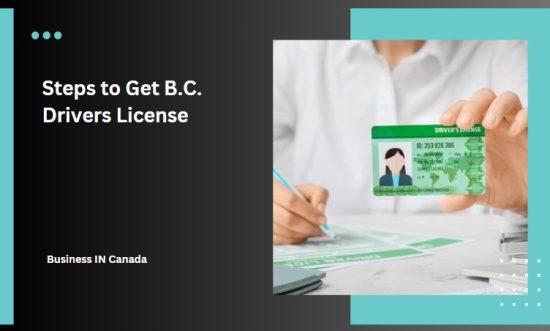
Getting a B.C. driver’s license involves several steps that every aspiring driver must complete. The first step towards obtaining a B.C. driver’s license is to meet the eligibility requirement, which includes being at least 16 years of age and having a clean driving record. Let’s see that in detail.
Eligibility Requirement
Before you can begin the process of obtaining a B.C. driver’s license, there are certain eligibility requirements that must be met. Firstly, you must be at least 16 years old to obtain a learner’s permit in British Columbia.
Additionally, you must provide proof of identity and residency to apply for your license. This includes providing two pieces of government-issued identification, such as a passport or birth certificate, as well as proof of residency, such as a utility bill or rental agreement.
It is also important to note that any outstanding fines or fees owed to ICBC (Insurance Corporation of British Columbia) will need to be paid before applying for your license. Furthermore, individuals with medical conditions may need additional documentation from their doctor confirming they are fit to drive.
It is important to ensure that all eligibility requirements have been fulfilled before starting the process of obtaining your B.C. driver’s license.
Knowledge Test
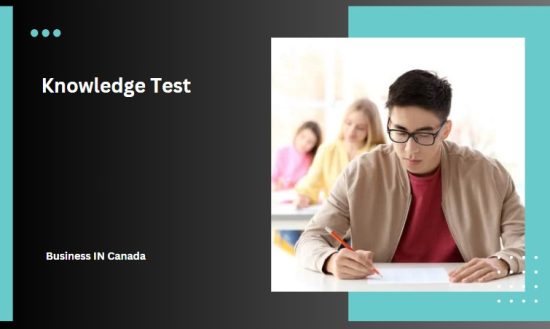
The knowledge test is vital to getting your B.C. driver’s license. It assesses your understanding of traffic rules, road signs and regulations, and driving techniques specific to British Columbia. This exam tests the skills you will need as a safe driver on B.C. roads. To take the knowledge test in B.C., you must be at least 16 years old and have valid government-issued identification. You can start preparing for this exam by studying the B.C Drivering Handbook or taking online practice tests.
During the actual exam, you will typically be asked multiple-choice questions about a range of topics related to road safety laws and practices. The number of questions varies depending on which class of license you’re applying for.
Getting enough rest before taking this exam is essential so you can remain alert throughout it. If English isn’t your first language or if you have reading difficulties, ask for help from an interpreter or opt for an oral test instead. Getting through the knowledge test successfully brings us one step closer to obtaining our full driver’s licenses!
Practice Driving
Practice Driving is one of the most crucial steps in obtaining a B.C. driver’s license. It allows you to gain experience and confidence behind the wheel, making you a safer driver overall. Before starting your practice driving sessions, it’s important to familiarize yourself with the rules of the road and understand how to handle different driving situations. You can study the British Columbia Driver’s Handbook or take an online driver education course.
When practicing, make sure to always have a licensed driver with you who has held their full license for at least two years. Practice during different times of the day and in various weather conditions to get comfortable driving in all situations.
Start by practicing basic maneuvers such as turning, accelerating, braking and parking before moving on to more complex skills like merging onto highways or navigating through busy intersections. Remember that practice makes perfect! The more time you spend behind the wheel, the more confident and skilled you will become. So take your time and don’t rush things – safety should always be your top priority when learning how to drive.
Obtain Learner’s License
A Learner’s License is the first step in obtaining your British Columbia driver’s license. It allows you to start practicing driving under supervision before taking your road test. To be eligible for a learner’s license, you must be at least 16 years old and have passed a written knowledge test on the rules of the road and traffic signs. You will also need parental or guardian consent if you are under 19 years old.
Once you have your learner’s license, practicing driving as much as possible with a qualified supervisor who has held a full driver’s license for at least five years is important. This can include parents, guardians, or professional instructors.
It is recommended that learners take an approved driver training course to gain additional knowledge and experience behind the wheel before taking their road test. With enough practice and preparation, passing your road test and obtaining your full driver’s licence will be within reach!
Road Test
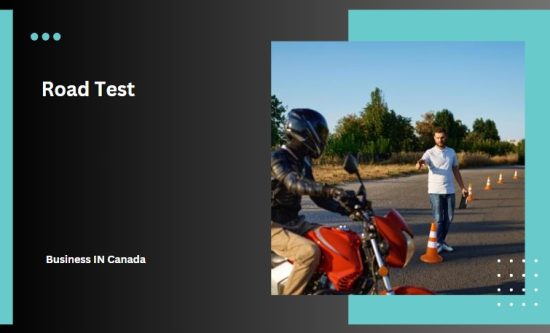
The Road Test is the final step in obtaining a B.C. driver’s license, and it involves demonstrating your ability to drive safely on the road. Before taking the test, you must ensure you have completed all necessary practice driving hours with your Learner’s License.
During this test, a licensed examiner will accompany you and assess your ability to perform various maneuvers such as turning, changing lanes, parking and stopping at intersections. The examiner will also check if you can properly use signals while driving and follow traffic rules.
Practicing regularly with a seasoned driver or driving instructor is essential to prepare for this test. This practice helps build confidence behind the wheel and ensures that drivers are aware of their surroundings while on the road.
When taking the Road Test, make sure to remain calm and focused throughout. Remember all that you’ve learned during training sessions and apply them when required. If you are successful in passing this test, congratulations! You’ll receive your Full Driver’s License after paying any applicable fees.
Obtain the License
Once you have successfully passed the road test, it’s time to obtain your British Columbia driver’s license. The process is straightforward and requires a few simple steps.
Firstly, make sure all necessary documentation, such as identification, proof of residency, and any completion certificates from driving courses, are in order before heading to an ICBC licensing office. Next, pay the applicable fees for obtaining your B.C. driver’s license. Depending on the type of licence being sought, fees change.
After paying the fees and submitting necessary documentation at a licensing office or online through the ICBC website portal, you’ll receive your interim license, which will be valid for 90 days while waiting for your permanent one in the mail.
It is important to note that if there are outstanding fines against you or any unresolved issues with regard to medical conditions that may affect driving abilities can result in denied issuance of a B.C. driver’s license until these matters are resolved. With these simple steps completed, congratulations! You’ve now officially obtained your British Columbia driver’s license.
Conclusion
As we come to the end of this guide on how to obtain a B.C. driver’s license, it’s important to remember that getting your license is a significant step toward independence and freedom.
By following the steps outlined in this article, you can ensure that you are well-prepared for each stage of the licensing process. From studying for your knowledge test to practicing your driving skills with a licensed supervisor, taking each step seriously will increase your chances of success.
FAQ – B.C. Drivers License
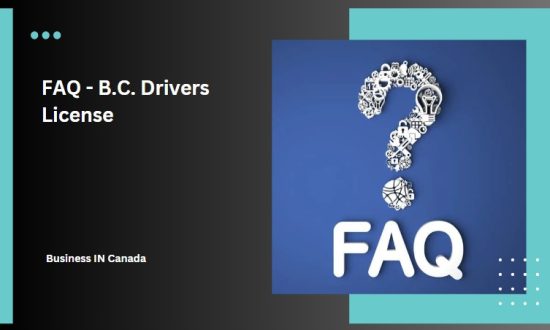
What is required to get a B.C. drivers license?
Acquiring a B.C. driver’s license is essential for those looking to easily navigate British Columbia’s roads. The process involves several key steps and requirements that prospective drivers must meet.
Firstly, applicants must meet specific eligibility criteria. This includes being at least 16 years old and providing proof of identity, such as a birth certificate or passport. Additionally, those applying for their first license should not have any prior driving prohibitions or suspensions on record in the past two years.
Next, individuals need to pass a knowledge test covering road signs, traffic rules, and safe driving practices. Studying the “Learn to Drive Smart” guide provided by ICBC thoroughly is crucial before attempting this examination.
Once successful in the knowledge test, aspiring motorists will receive their learner’s (L) license permitting them to practice driving under supervision. During this stage, it is imperative that drivers hone their skills while adhering to all restrictions associated with an L-license holder.
Ultimately, obtaining a B.C. driver’s license requires dedication from applicants willing to invest time into learning provincial regulations and consistently practicing safe, behind-the-wheel habits.
How to convert Ontario license to B.C.?
If you’re moving to British Columbia from Ontario and have a valid driver’s license, you can convert it to a B.C. driver’s license without taking the knowledge test or road test. However, there are certain requirements that must be met before your Ontario license can be converted.
To convert your Ontario license to a B.C. driver’s license, you must provide proof of identity and residency in B.C. This includes providing two pieces of I.D. with at least one containing your photo and signature, such as a passport or citizenship card.
You will also need to provide proof of residency in B.C., such as utility bills or rental agreements. If you’re not able to provide these documents in your name, you may need to get an affidavit confirming your address from someone who knows you well.
Once all the required documents have been submitted and verified by ICBC (Insurance Corporation of British Columbia), they will issue you a new B.C. driver’s license with the same class as your Ontario license. It is important to note that if your Ontario license has already expired or been suspended/revoked, it cannot be converted.
Converting an Ontario driver’s licence into a B.C. driver’s licence is straightforward if all necessary requirements are met.
How long does it take to get a driver’s license in B.C.?
Obtaining a driver’s license in British Columbia requires time and effort. Getting a B.C. driver’s license can take several months to a year, depending on the individual’s pace. The first step is to meet the eligibility requirements, which include being at least 16 years old and passing an eye exam. After meeting these requirements, one must pass a knowledge test that covers traffic laws and safe driving practices.
Once the knowledge test is passed, it’s time to practice driving with a licensed driver who has at least two years of experience. This stage usually takes around three to six months, during which individuals need to complete 60 hours of supervised driving practice.
After completing the required practice hours, one may apply for their learner’s license and take the road test for novice licensing. Depending on demand, these tests typically have wait times ranging from several weeks to months. Obtaining a driver’s license in B.C. can take some time, but it is worth it as you acquire valuable skills that will serve you well throughout your life.
Can I drive in B.C. with an Ontario G1?
If you have an Ontario G1 license and plan to drive in British Columbia, there are a few things you need to know before hitting the road. First of all, it’s important to note that your G1 license is not valid in B.C. You’ll need to obtain a B.C. driver’s license to drive in B.C. as an Ontario driver legally. The good news is that if you have a full Ontario driver’s license (G2 license or G), the process for getting a B.C. driver’s license is relatively straightforward.
However, if you only have a G1 license from Ontario, you will need to start by obtaining your learner’s permit in British Columbia. This means passing the written knowledge test and then completing practice driving with a licensed supervisor.
After completing these requirements and passing your road test, you can obtain your full B.C. driver’s license. So while it may take some time and effort to get fully licensed in both provinces, it’s worth taking the steps necessary to ensure legal and safe driving on the roads of British Columbia.
How many driving lessons do you need B.C.?
In summary, obtaining a B.C. driver’s license requires meeting eligibility requirements, passing a knowledge and road test, and completing the necessary practice driving hours. It is important to note that the number of required practice driving hours varies depending on the type of license being pursued.
For a learner’s license, drivers must complete 60 hours of supervised driving practice before they are eligible for a road test and 16 hours of in-class training. For novice drivers aiming for their full license, an additional 12 months of safe driving with no at-fault crashes or violations is required.
As for those who hold licenses from other provinces or countries, it is possible to convert them to a B.C. driver’s license by submitting certain documents and passing any necessary tests. Getting your B.C. driver’s license may seem like a daunting process, but it is achievable with determination and effort. And once you have your license in hand, you will have newfound freedom and independence on the roads!




